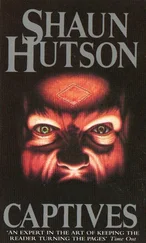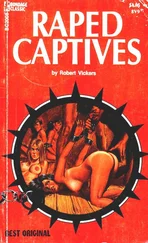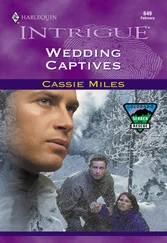Norman Manea - Captives
Здесь есть возможность читать онлайн «Norman Manea - Captives» весь текст электронной книги совершенно бесплатно (целиком полную версию без сокращений). В некоторых случаях можно слушать аудио, скачать через торрент в формате fb2 и присутствует краткое содержание. Год выпуска: 2014, Издательство: New Directions, Жанр: Современная проза, на английском языке. Описание произведения, (предисловие) а так же отзывы посетителей доступны на портале библиотеки ЛибКат.
- Название:Captives
- Автор:
- Издательство:New Directions
- Жанр:
- Год:2014
- ISBN:нет данных
- Рейтинг книги:3 / 5. Голосов: 1
-
Избранное:Добавить в избранное
- Отзывы:
-
Ваша оценка:
- 60
- 1
- 2
- 3
- 4
- 5
Captives: краткое содержание, описание и аннотация
Предлагаем к чтению аннотацию, описание, краткое содержание или предисловие (зависит от того, что написал сам автор книги «Captives»). Если вы не нашли необходимую информацию о книге — напишите в комментариях, мы постараемся отыскать её.
Captives
This is a moving account of a country shaken by communism and anti-Semitism and haunted by recent atrocities, from "a distinguished writer whose vision of totalitarianism is close to Kafka's cloudy menace, universal yet internalized" (Richard Eder,
).
Captives — читать онлайн бесплатно полную книгу (весь текст) целиком
Ниже представлен текст книги, разбитый по страницам. Система сохранения места последней прочитанной страницы, позволяет с удобством читать онлайн бесплатно книгу «Captives», без необходимости каждый раз заново искать на чём Вы остановились. Поставьте закладку, и сможете в любой момент перейти на страницу, на которой закончили чтение.
Интервал:
Закладка:
I found myself in the street, flattened against the glass of the telephone booth. I’d left the office in a delirious state because I could no longer stand the 27,000 monkeys pounding their typewriters. I had to get to the street, immerse myself in rain, and get rid of the flowers that tethered my hands and impeded my memory; I had to arrive at the obese professor’s lair, to kill the purgatory that Little Moni-pig represented — symbolically. I’d have to be brisk. My bullets would fire rapidly, my arms would quickly suffocate, the poison would kill quickly, without a trace. Then I’d run into the street again to encounter other hours, the city, and the police under the cold, uniform sky of the siege.
I wandered through the Big City’s slums. The collegial bleating awaited me, ready to oppress me. And meanwhile I went on looking at the display windows of clothing and pastry shops, going into cinemas, schoolyards, following the pathways through parks, detouring around kiosks, cafes, and small shops, until I found myself in the square. Limousines kept sliding by, white, black, and green, and the chauffeurs — relaxed as a gang of grandpas — continued opening car doors, and the chubby, hysterical children lay siege to the school gates.
One morning, when I was still a somnolent Polytechnician, I might have bumped into Monica Smântănescu; I might have seen her claws thrust into her white and bloated flesh, and the horrifying routine with the limousines, and the tyrannical students, and the cunning, guilty dwarfs. Back then, I might have been able to meet her and kill her, so that I would never have to see her again, never be obliged to recognize her as a potential double to be saved or killed, so that no one would discover we were passengers in the same fatherland, destined to meet again in a square surrounded by black and white and green crocodiles, revolving greedily like the ghosts of an infinite moment. Back then I might have met the giantess Monica Smântănescu and the sadistic dwarf, Tiberiu Covalschi, in an exceptional circus — with sleight of hand and hypnosis — but I was in too much of a hurry to pass through the colors of days without end, from one dawn to the next, through nights without end.
The end of the week and the end of the year would need to find me sufficiently tired. On the afternoon of the sixth day, the eve of the seventh, and the seventh day, I would not have been accepted at the festivities of pantomime and obedience training if I hadn’t proved that I was suitably tired: hollow-cheeked, wrung-out, transparent — just as I was supposed to be. Time hastened rapidly with its streets and damp skies. The afternoon and the evening of the sixth day were coming. I needed to be at present at the climax of the weekly masquerades. Every week we’d celebrate another end: of school, of the war, of the family, the faculty, the end of the semester, the year, the five-year plan. . This Saturday I’ll say farewell to the venerated schoolteachers Sofronie and Popovici, shake the hand of my parents’ friends Mehedinţi and his wife, Ileana the Fairy-tale Princess. I must bend my knees, kiss the hands of those who brought me into the world, while thanking them for the good raising and unraising. . I must embrace my sisters reduced to smoke in the old crematoriums, take Donca in my arms, then cry on the threshold of the house where I was raised, which I don’t know if I’ll have time to see again because next Saturday I will be far away, I’ll have finished with my studies, I’ll have chosen my next workplace, left my classmates, who I don’t know if I’ll ever see again, because another Saturday is coming: the weeks mount up with their Sabbath of pantomime and obedience training — only it’s not time, one must take full advantage of every working day, from dawn to dark, using each of those 480,000 seconds to strike the 35 keys to the 27,000thththth power and eventually we’ll hit on the end, the masterpiece, which is to say the grand finale, crowned with black flowers.
I went on clambering into damp trams: I was setting out for the faculty, the factory, the cemetery; individuals and spies, patrols and pickets and pedestrians climbed on and off, like contortionists wrapped around me, crushing me, hurling me to the roadway before my destination; I would forget when and where I had started my journey through the damp streets of the Big City to meet the awaited chimera. The years flew by quickly: the Saturday would come when I would make the acquaintance of the illustrious artillery Captain, and with two movie tickets, he would begin teaching me how to watch a war movie, honoring me with his inquisitive attention, finding me worthy, with my mask of an aged child, admiring my great, livid, dark circles mirrored in the well’s overturned bucket, giving me master classes in equitation, on tall horses, scattered along the curves of the shore, their damp muzzles searching the sea of apples by the seashore. The girl who appeared in our dreams would have to be found by Saturday, when I would become the confidant of the Captain who used to spend his nearly sleepless nights on the edges of forests and the banks of rivers, slunk away like some feral creature, and haunted by the nightmare of the skeletons he sacrificed among the convoys of deportees and detainees, so that I should learn to not slam doors, or shells or mines, to rotate doors slowly, without startling anyone, without making a noise, so that the smoke of the crematoria might ascend slowly and rest in peace.
I was looking at the long loden coats that hid the breasts and thighs of the girls in my class, searching for their white knees lost under immense skirts, their ankles squeezed into rough boots, their hair covered with rough kerchiefs. I wanted to be able to compare their bodies, foreheads, and gazes, to be able to recognize the pale girl, frail under the rain, with long black hair waiting to be pushed aside like a theater curtain. I would have to hurry from Monday to Tuesday, Wednesday to Thursday, until the two halves of Friday, as long as there was still time for the torment of chastity; for soon the curtain will be pulled and the sweet and filthy whores will pounce; I would have to writhe now, in hot, humid dreams, to take advantage of insomnia, to sink my hands and nostrils in the darkest folds of the damp sheets, to prolong the last endless days, to allow 27,000,000 trials, now, only now, when the nostrils of the young wolf were flared at every beast in the street, but without having the courage to approach. In the short dreams of the last, endless night before the festive day, I would have to draw a line, a fire, a finale, to begin another week and year and five-year life; the weeks will be five years long again and the years filled with an unaccountable number of weeks. Every five years, those years of mine, the five-year plans of delusion.
• • •
We rarely wrote. A message from them, however it might have seemed, was an appeal — an alarm. As it was, I hadn’t been the eminent son crowned with laurels for a long time. I was now hanging onto my university exams by the tail. After graduation I would encounter my folks again in their established roles. I had left home one fall, then raced through vacations far away: at the factory, in the army, in student camps. But now the air was damp as it was back then. Maybe I’d find the strength to wear the old masks again.
The train had swallowed me quickly. The compartment rocked in the dark. The heavy body of the man on my right was rocking too, as were the long legs of the man in front of me. I had braced my shoulder against the door and was listening to their breaths mix together and the nighttime noises of their lips and snores. The volume of air had diminished; it was stuffy. Through the window, the landscape raced forward, and the bare, blackened trees, like abandoned old people, were now running backward toward the irrevocable nights of their youth. The train was chasing the night; it was easy to imagine that we would run into some other wild beast or be swallowed by the great holes of darkness that we couldn’t quite reach. The travelers went on sleeping like babies in the train’s metal belly. There would be no witness to the disaster. Two neighbors to the right whispered to each other. I drowsed, and it seemed I could hear them beside me. The darkness was total. I couldn’t see them.
Читать дальшеИнтервал:
Закладка:
Похожие книги на «Captives»
Представляем Вашему вниманию похожие книги на «Captives» списком для выбора. Мы отобрали схожую по названию и смыслу литературу в надежде предоставить читателям больше вариантов отыскать новые, интересные, ещё непрочитанные произведения.
Обсуждение, отзывы о книге «Captives» и просто собственные мнения читателей. Оставьте ваши комментарии, напишите, что Вы думаете о произведении, его смысле или главных героях. Укажите что конкретно понравилось, а что нет, и почему Вы так считаете.












